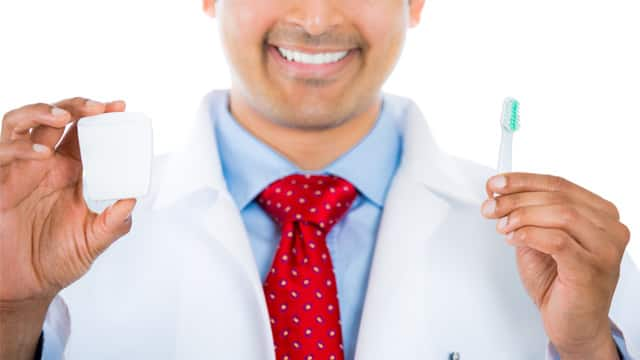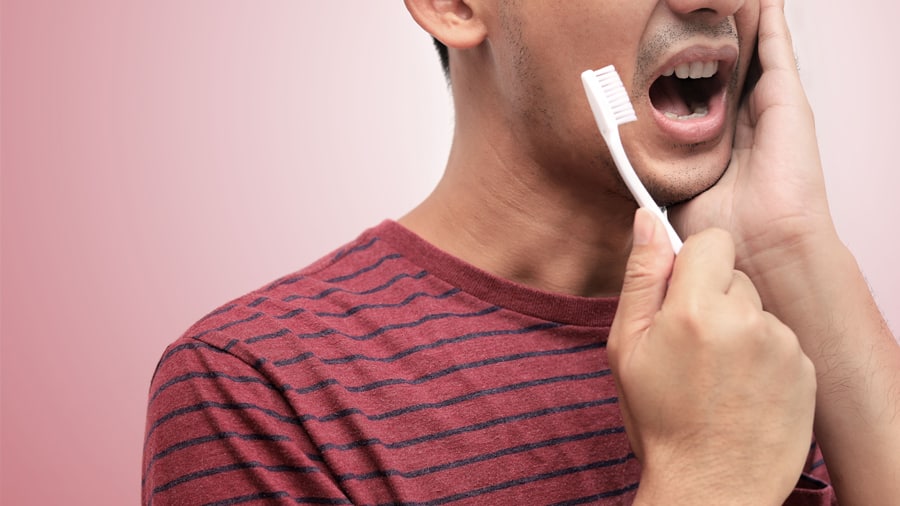Cavity classification system
Dental caries, or cavities, as we commonly call them, are caused by a breakdown of tooth enamel, which is the result of bacteria on the teeth that breakdown sugars and produce acid that's destructive to tooth enamel. But what are the different types of cavities?
Class I
- This describes tooth decay that occurs on tooth surfaces your dentist can see easily. This category includes cavities on the chewing surfaces of the back teeth, such as your molars and premolars, and decay on either the front or rear surfaces of the front teeth.
Class II
- These cavities occur on the surfaces between the molars and premolars and are not visible to the human eye.
Class III
- This decay occurs on the surfaces between the front teeth, but it does not involve the cutting edges of the teeth. Similar to Class II, this classification of decay is not visible.
Class IV
- This decay also occurs on the surfaces between the front teeth, but it involves the cutting edges of the teeth.
Class V
- These cavities appear on the front or back of either front or back teeth, near the gumline.
Class VI
- This decay is found on the top surfaces of the teeth, either the incisal edges of front teeth or the cusp tips of back teeth.
When you see your dentist for a check-up, they will use instruments to help detect soft spots on your teeth visible to the eye. Your dentist may also need current X-rays (or take new X-rays) to detect cavities.
Determining the Severity of Decay
Depending on its extent, decay is classified as incipient, moderate, advanced or severe. But to understand these categories, it helps to know a bit about tooth anatomy. The outer layer of a tooth is made up of calcified enamel that protects the inner portion of the tooth called dentin. At the centre of the tooth is the pulp chamber, which is the innermost layer that consists of nerves, blood vessels, and connective tissue.
Using the system outlined above, dentists evaluate tooth decay based on how far the damage has penetrated these layers of tissue:
Incipient
- These cavities have gone less than halfway through the tooth's enamel.
Moderate
- These cavities go more than halfway through the enamel but don't yet reach the dentin-enamel junction (DEJ), the boundary where the enamel meets the dentin.
Advanced
- These cavities go through the DEJ but go less than half the distance to the pulp chamber.
Severe
- This decay penetrates through the enamel and the dentin and goes more than half the distance to the pulp.
Early detection and treatment of decay with fillings can prevent more serious complications or tooth loss in the future.
Preventing Cavities
Although tooth decay is the most common chronic disease among children and adults, it's important to remember that it is preventable. If you want to prevent decay, the e-Dant Seva offers some tips on what you and your family can do:
- Brush your teeth twice a day with fluoridated tooth paste.
- Incorporate fibrous food in your diet.
- Visit your dentist every 6 month for routine oral examination. nutritious, balanced choices.
- You can also ask your dentist about supplemental fluoride treatments.
Now that you're familiar with the classes of cavities, you can feel more empowered when you visit the dentist. Understanding your oral health is the first step to improving it. And while it's great to know about cavities and how common they are, remember that with a healthy diet, regular care and visits to your dentist, you can effectively prevent cavities—and enjoy your smile!
This article is intended to promote understanding of and knowledge about general oral health topics. It is not intended to be a substitute for professional advice, diagnosis or treatment. Always seek the advice of your dentist or other qualified healthcare provider with any questions you may have regarding a medical condition or treatment.
ORAL HEALTH QUIZ
What's behind your smile?
Take our Oral Health assessment to get the most from your oral care routine
ORAL HEALTH QUIZ
What's behind your smile?
Take our Oral Health assessment to get the most from your oral care routine













